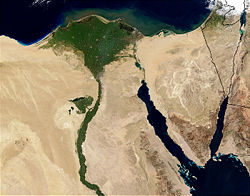I will send rain on your land in its season,
both autumn and spring rains,
Deuteronomy 11:14
At the Canadian Clay and Glass Museum in Waterloo, Ontario I saw a sculpture titled
All That the Rain Brings by British Columbia ceramic artist Mary Fox.
Let me try to describe it and interpret what it seems to me the title and the sculpture suggest about rain.
 |
All That The Rain Brings
Sculptor Mary Fox
Photographer: Janet Dwyer |
The uppermost of three small bowls is tilted down-wards. Rain is sheer gift. It comes from above and what it brings is life-giving. It supports us biologically as surely as the wavy ceramic column supports the bowl physically and artistically.
The downward flow of the three bowls follows the flow of rain from cloud to earth and streams and back to the sea. The three bowls suggest multiple ways that rain sustains our lives physically, economically, spiritually. We use water for drinking, washing, cooking, agriculture, industry and recreation.
The bowls are positioned erratically suggesting that the rain is not a neat and tidy process. We can’t control when the rains come – they may be late or early -
doesn't rain often seem inconvenient? - sometimes the rain is too much or too little. None of the bowls is level as if to remind us that we can’t hold on to water.
This sculpture looks to me like a haggard old woman – and perhaps that’s what we are as we wait for rain. We do our best to catch it and keep it, and we manage it as we can, but at best we’re at the mercy of the elements. We are receptors of nature’s bounty.
And maybe
that’s part of what rain brings us – an extravagant gift, a humble reminder of our identity and lessons in patience, humility, gratitude and
. . . wonder! As dramatically as rain brings the dry land back to life, so this gift -
wonderful in every way - renews hope and energizes life. I'm pretty glad about that.
Generous Source of all that the rain brings,
how gladly we welcome your gift of rain.
How vital it is -- and yet how anonymous You are.
Teach us your name, your largesse, your modesty.
Help us learn to tilt our bowls to others
as freely as You have tilted yours towards us. Amen
If interested, you can see more work by Mary Fox at the Jonathan Bancroft-Snell Gallery in London, Ontario -
http://www.jonathons.ca/


















































